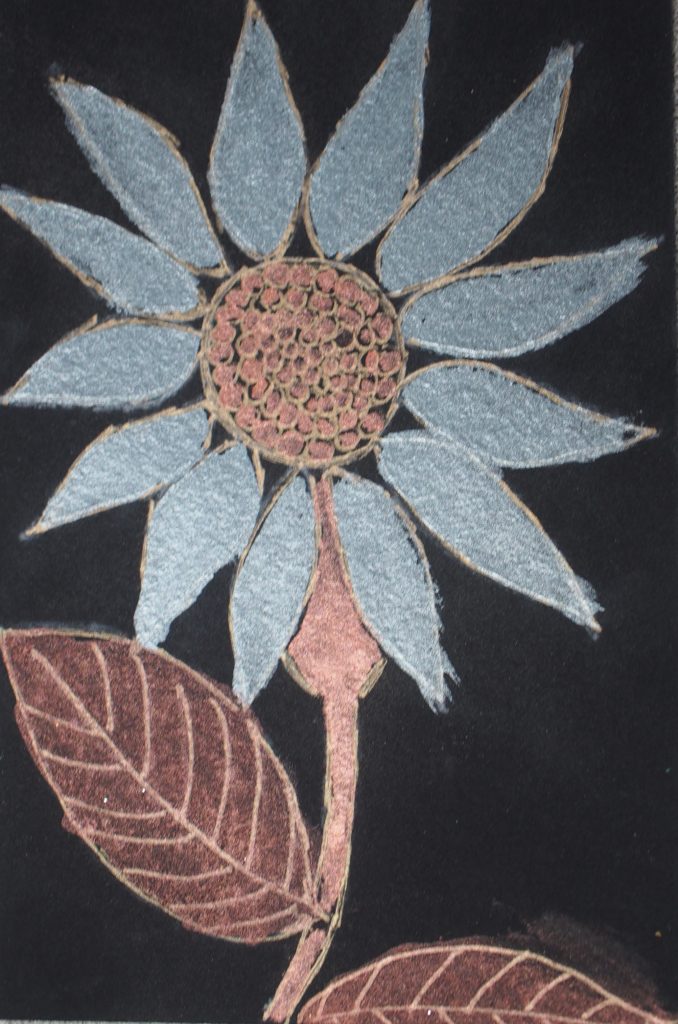an interview with an Afghan poet
Flowers of War
by Nematullah Ahangosh
most stories end up beautiful only some end so awful like when the bullets, pregnant as almonds, fast as fear pierce like glass the skins on streets of Kabul beautiful stories? I don’t even know what that is you mean flowers of war? oh? i know those! they are survivors like sheep grazing on the fields of others with trembling legs fearing the field owners will arrive and chase them like wolves

Alice: Could you tell me what motivated you to write this beautiful and very touching poem?
Nematullah: Actually, every day, life for my community (the Hazara Community) has been very bad recently, and you can actually guess that there will be another explosion or attack on our community. It’s become kind of regular, unfortunately.
Alice: My readers might not know who the Hazara community is. Could you offer me some information?
Nematullah: The Hazara community is an ethnic group. It’s a Shiite minority in Afghanistan that has been facing ethnic cleansing. Every government, be it a democratic government or the Taliban, has been targeting us because of our ethnic background. Recently, the Taliban failed to protect us. We even don’t know if we are targeted by the Taliban themselves.
(Note: the attempts at ethnic cleansing date back to the nineteeth century. According to Nematullah, “On Sept 25th, 1893, 62% of Hazaras were massacred.” The massacre occurred as a result of Afghan King Amir Abdur Rahman Khan’s violent campaign against the Hazara people. His reign lasted from 1880-1901.)
During the civil war. between 1980s to 2000 also, many were killed because our community has been less interested in weapons (which I believe is the best way of living), but because we were defenceless; we were victims. After 2001, we were let to be ourselves and, when the international community got involved, we once again started living in less fear. However, we were still being targeted by terrorist groups. Now that the Taliban came into power again, the situation got worse. People were forced to leave their hometowns because the Taliban doesn’t believe we belong to Islam, so they forced us to leave our ancestral villages.
Alice: What happened recently at the Kaaj educational institution?
Nematullah: The Kaaj education centre is one of the leading institutions that prepares high school students for entrance exam of government universities. It was attacked before, just like the one that happened last Friday. Then boys and girls were killed. This time, the majority were girls who even didn’t know if the Taliban would let them into universities, due to their unknown Sharia law. Last Friday, more than 50 students were killed and including the security guard and more than 100 injured. The death toll rises, according to reports by the UN, as the wounded are badly injured and may not survive.
Alice: What would you like the world to know about your community?
Nematullah: I would like the world not to turn their backs on us. If they do, we will be just another tragedy and a sad memory in human history. Hazara people feel being left alone. We are a minority. Now there are wounded girls; some might have lost their limbs or may remain disabled for the rest of their lives. I as a disabled person understand how life will be difficult in war-torn Afghanistan. The world should not forget one of the most vulnerable minority. We need solidarity more than anything else now. The world should at least show sympathy. Joining the hashtag #StopHazaraGenocide, is now trending on social media. People from all the word can support this hashtags.
Alice: Absolutely. And, when I advertise my blog post, I will use the hashtag.
Nematullah: You might know Kathy Kelly; she just commented a very detailed information on the ethnic cleansing of the Hazaras from seven months ago.
Let me know if you have more questions.
Alice: Could you tell me something about you as a poet?
Nematullah: I have been writing poetry since high school but it’s been four years (since) I started writing in English. Several of poems have been published around the world. The themes for my poetry are mainly about everyday life in war-torn Afghanistan. My manuscript will be published by Haley’s Publishing house in USA (https://www.haleysbooks.com/) most probably this year.
Alice: You have a gift for poetry, Nematullah. I am looking forward to reading your book and I will be happy to advertise it in my blog!
Nematullah: Thank you very much Alice! Sure, once the manuscript is published, I will share it with you.
Alice: Thank you!
Thank you very much Alice!
You’re very welcome, Nematullah.
Beautiful!
Thank you so much.
This was wonderful! There is such a rich history of poetry in Islamic and Afghan culture, thank you for make me aware of Nematullah!
Thank you so much. I will share information about his book when it becomes available!
What a beautiful but sad poem. I loved your interview with Nematullah and will be looking forward to you posting more when the book becomes available. We take so much for granted while so many suffer.
Thank you for your comments, Martha. For sure, I’ll let you know when the book is available.
Alice, thank you so much for writing this blog and to Nematullah for speaking with you about this. I had no idea this was going on. I am going to do some more reading today.
I am so grateful to Nematullah for taking the time to talk to me and for sharing this information with my readers and with me.
Thank you for writing this Alice. There is so much I do not know. I can’t unlearn this and will be praying for peace and healing.